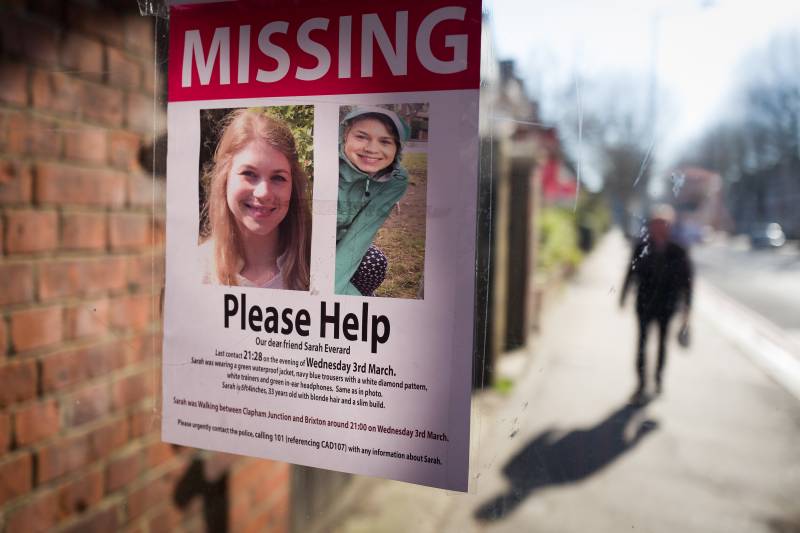Over the past 48 hours, an emotional outpouring has flooded Twitter, the likes of which has not been seen since the international #MeToo uprising of 2017.
This week, British women have once again been sharing stories about assault, harassment and the ever-present fear that comes with moving through public spaces. And they’re doing it because of Sarah Everard—a 33-year-old woman who disappeared while walking home in South London on March 3. A police officer has since been arrested on suspicion of her murder.
Multiple observers have noted that Everard met a violent end despite taking an abundance of precautions. The marketing executive left her friend’s house at an early hour, stuck to main roads and wore brightly-colored, sensible walking gear. Still, the human remains that police discovered a week later, 56 miles away in Kent, were identified as Sarah Everard on Friday morning.


